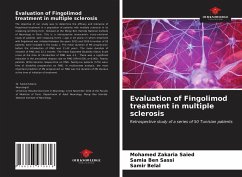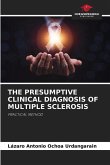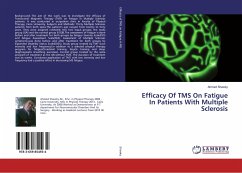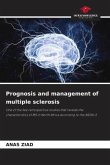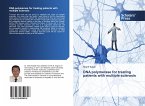The objective of our study was to determine the efficacy and tolerance of fingolimod treatment in a population of patients with multiple sclerosis in its relapsing-remitting form, followed at the Mongi Ben Hamida National Institute of Neurology in Tunis. This is a retrospective monocentric cross-sectional study of patients with relapsing forms ( age 18 years) in whom treatment with fingolimod was initiated between the years 2015 and 2019.A number of 50 patients were included in the study. L. The mean duration of MS progression before the introduction of FING was 11.42 years. The mean duration of initiation of FING was 32.1 months. The mean Expanded Disability Status Scale score at the time of introduction of FING was 4.3 . There was a significant reduction in the annualized relapse rate on FING (OR=0.036, p<0.001). Twenty patients (43%) became relapse-free on FING. Twenty-six patients (57%) were free of disability progression on FING. In multivariate analysis, the most important predictor of MS progression on FING was the duration of MS disease at the time of initiation of treatment.
Bitte wählen Sie Ihr Anliegen aus.
Rechnungen
Retourenschein anfordern
Bestellstatus
Storno

